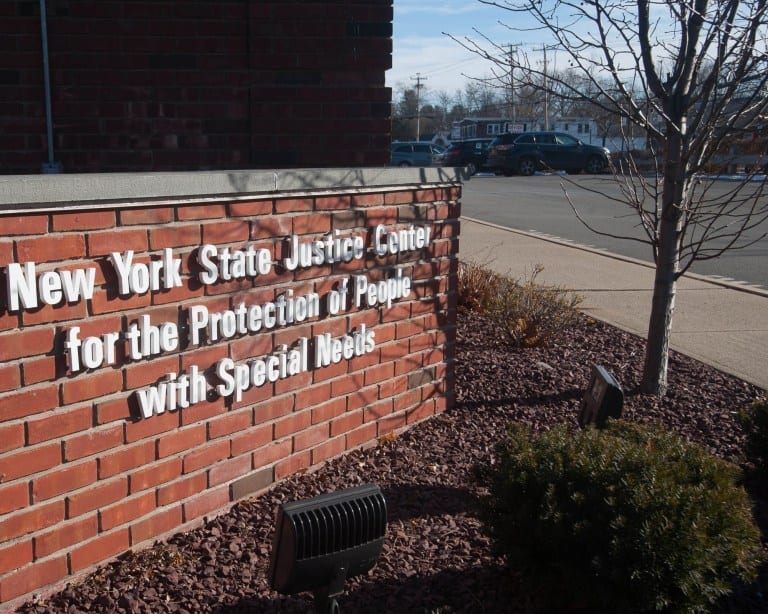ALBANY — The Appellate Division upheld three lower court rulings that dismissed charges brought by the Justice Center for the Protection of People with Special Needs based on the belief the state agency did not have the authority to prosecute.
The unanimous decision was written about the case of Nicole Hodgdon, a substance abuse counselor charged with raping a client at a residential treatment home. But, the seven judges attached that decision to two other cases — Marina Viviani and Justin Hope — thrown out by Albany County judges.
Basically, the appellate judges agreed, despite the Legislature granting the Justice Center the authority to prosecute cases, the state Constitution only extends that power to elected officials like the state attorney general and the county district attorneys.
“As a constitutional officer, chosen by election, a district attorney possesses prosecutorial authority, the essential characteristic of which has been defined as ‘the discretionary power to determine whom, whether and how to prosecute,’” according to the decision. “The Legislature has no authority to transfer any essential function of a district attorney to a different officer chosen in a different manner. Consequently, there is no constitutional support for the Legislature’s attempt to provide for the gubernatorial appointment of a non-elected special prosecutor, independent of the and with unfettered prosecutorial power.”
Justice Center spokesman Bill Reynolds said in a statement the agency will appeal.
“History shows cases like these slipped through the cracks, which is the very reason the Justice Center was created,” he said. “Current Justice Center cases are protected from this type of challenge and this decision has no impact on operations. We will not stop our fight to protect this vulnerable population from dangerous predators. That fight continues by appealing this decision.”
The Court of Appeals, though, is not obligated to hear their case. There are automatic appeals from the lower courts to the Appellate Division.
The latest Appellate Division decision quoted a dissenting opinion on the appeal of Marthesha Davidson, who was accused of assaulting a 14-year-old boy in the Finger Lakes. Court of Appeals Judge Jenny Rivera, in her dissent, said Legislation creating the Justice Center and giving it the ability to prosecute, would pass Constitutional mustard only under the direct and involved supervision of the local district attorney.
In other words, the DA’s office in each county must first OK the prosecution and then maintain oversight of the case.
The majority on the Court of Appeals did not weigh in on the merits of Davidson because of a technicality, her attorney did not cite his concerns during trial and therefore could not appeal the matter later.
As the most recent cases worked their way through the courts, then Attorney General Eric Schneiderman, in an uncommon brief sided with the defendants based on his reading of the state Constitution pitting his office against that of Gov. Andrew Cuomo. At the time Schneiderman was seen as a possible contender to Cuomo but was forced to resign in disgrace after allegations of domestic abuse surfaced.
The level of a DA’s involvement was also brought up during oral arguments in the Viviani case and mentioned in the latest Appellate Division decision.
The then 30-year-old teacher at the LaSalle School on Western Avenue (not LaSalle Institute in Troy) was charged with having sex with a then 17-year-old student in 2016. Her attorney, Michael Pollok, asked Judge Thomas Breslin to dismiss the charges based on the argument explained above and part of that discussion was the level of involvement a DA must have in any given case.
When the Justice Center approached the Albany County District Attorney about Hodgdon, it produced a basic form that said: “As previously discussed, it is agreed that the [Special Prosecutor] will proceed with the criminal prosecution(s) stemming from [defendant’s alleged criminal conduct].”
The special prosecutor working for the Justice Center is appointed by the governor, according to the legislation approved in 2012 and that went into effect a year later.
The Appellate Division judges found the form letter did not go far enough regarding a DA’s administration of a case for two reasons. One is that the District Attorney, in this case the office of DA David Soares, wrote an affidavit saying “consent was given with the misunderstanding that delegation was unnecessary because the special prosecutor possessed independent, concurrent authority to prosecute defendant.
“This necessarily means that the District Attorney did not exercise his essential prosecutorial power to determine whether defendant should be prosecuted but, rather, merely acquiesced in the prosecution by the Special Prosecutor, whom he mistakenly believed already possessed the independent power to prosecute defendant,” according to the decision.
And the second reason, a logical extension of the first, it that the DA “failed to expressly retain ultimate responsibility for defendant’s prosecution.”
It is unclear at this time if the decision will impact any of the cases the Justice Center prosecuted in the past or if everything is on hold until the appeal mechanisms are exhausted.
“I do think, if the constitutional issues are not waived, there could be collateral attacks on cases that have already gone through the system,” said Albany Law professor Laurie Shanks when Breslin first dismissed the charges against Viviani. “Looking back is unusual, but a limited exception is when they didn’t have the authority in the first place.”



